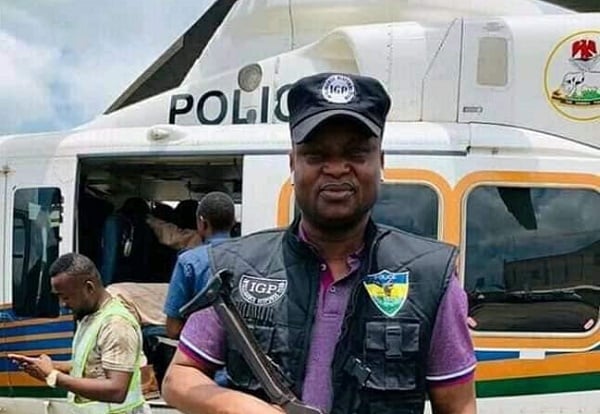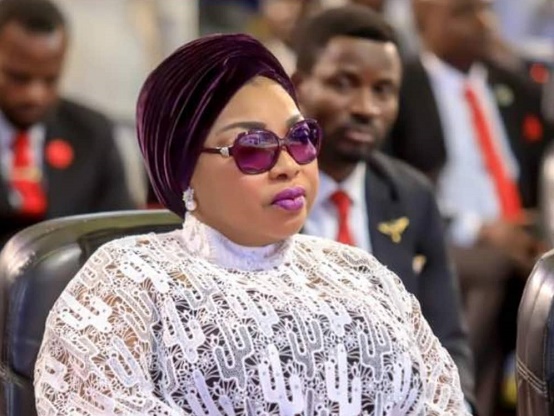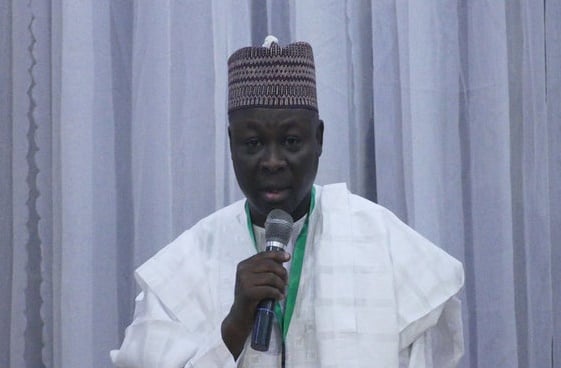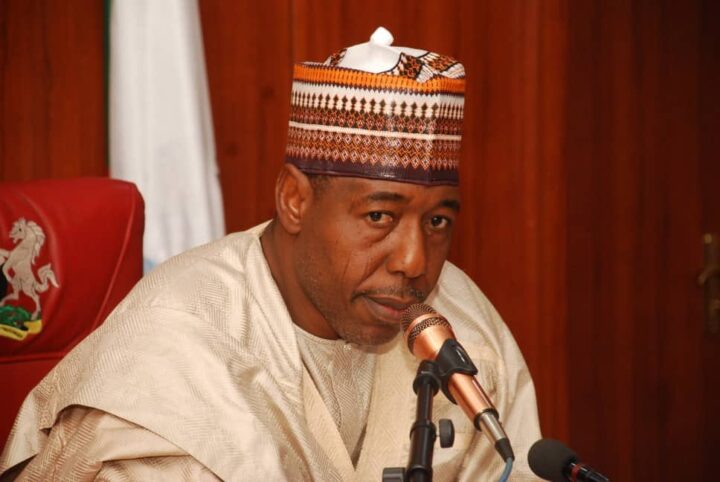EXCLUSIVE: FBI contacts Nigeria police over warrant arrest for DCP Abba Kyari
In a now-deleted Facebook post, Abba Kyari, suspended commander of the police Intelligence Response Team (IRT), claimed he helped a friend of Hushpuppi, the self-confessed international fraudster, recover N8 million.
Kyari came under public scrutiny when US court documents showed that Hushpuppi whose legal name is Ramon Abbas allegedly bribed him to arrest one Vincent Chibuzo, a co-fraudster.
Amid the criticism on social media, Kyari, in a Facebook post on July 29, denied receiving a bribe from Hushpuppi, adding that “my hands are clean”.
In the post, the suspended police officer said the suspect was arrested following a complaint by Hushpuppi that Vincent threatened to kill his family in Nigeria.
Advertisement
After the post, a US court order for Kyari’s arrest, detailing how he communicated with Hushpuppi on the arrest of Vincent and the subsequent wire transfer to Kyari’s team of “8 million Nigerian Naira, which was approximately $20,600 based on publicly available exchange rate information”, surfaced online.
KYARI MAKES U-TURN
In his earlier defence, Kyari did not say he helped Hushpuppi’s friend to recover N8 million from a friend.
Advertisement
But on August 4, Kyari altered his Facebook post to include another money-related case — this time it was a debt recovery matter involving himself and Hushpuppi.
The suspended IRT officer claimed Hushpuppi reached out to him in June 2020 on a financial transaction to help a friend recover N8 million from another person.
“He also called for another case in June 2020 and complained about a financial transaction with a second person whom he said his friend sent 8 million naira to and pleaded for his friend’s money to be recovered,” Kyari said in a now-deleted post.
“He sent transaction slips and other evidences to prove their case against the person, all these can be verified from the Hushpuppi since he is still in custody.
Advertisement
“And it can be verified from person who collected the 8 million naira from Hushpuppi’s friend whom they complained about is alive and is in Nigeria.”
After altering the post, Kyari proceeded to take down the full statement.
But are the police a debt recovery agency?

Advertisement
WHAT IS THE POSITION OF THE LAW?
The debt recovery by law enforcement agencies, especially by officers of the Nigerian Police Force and the Economic and Financial Crimes Commission (EFCC) has become a recurring issue in the country’s justice system.
Advertisement
Debt recovery and contractual breaches are civil cases, which, according to the Police Act are not the duties of police officers.
For instance, sections 4 and 5 of the Nigerian Police Act 2020 enumerated the functions of the police.
Advertisement
In all the functions of the police listed in both sections, there is no function that says the police officers can recover debts from individuals or make arrest of an individual on the basis of debts owed
Section 32 (2) under the Part VI (Powers of Police Officers) of the Nigerian Police Act 2020 stipulates that the police should not be involved in issues of civil wrong or breach of contract.
Advertisement
The section states “a person shall not be arrested merely on a civil wrong or breach of contract”.
For the sake of emphasis, section 8(2) of the Administration of Criminal Justice Act of 2015 states verbatim the provision of section 32 (2) of the Police Act.
The recovery of N8 million for Hushpuppi’s friend as claimed by the DCP Kyari can be classified as a matter of breach of contract — debt recovery — which is in contrast with the provisions of the aforementioned legal provisions.
In addition, several courts have ruled that the police are not debt collectors and should not be involved in activities that involve debt recovery.
For instance, in the case of McLaren & Ors V Jennings (2002), the appeal court ruled that debt collection is not part of the duties to the police.
“The defendants supplied the vehicle to take the police to Kano to demand and recover a debt and not for the purpose of investigating an offence. The police, to my mind, had no discretion in the matter. This arrest, in the circumstance, was wrongful. It was wrongful on the appellants’ showing,” Ayo Salami said in the lead judgment.
“In short, the appellants and the policemen they took to Kano were there to collect debt which is not one of the several duties assigned to the police under the provisions of the police act to which the court was directed and the court has not been able to find another provision of the act empowering or constituting the Nigeria police force to one of a debt or rent collector.”
Another case is Kure v C.O.P (2020) at the supreme court. The apex court ruled that issues involving breach of contract are not part of the primary duties of the police, while wondering how the police could “easily metamorphose” a civil matter to a criminal case.
The apex court dismissed the conviction of the appellant, who had breached a contract agreement to deliver calf giraffes to the Rivers state ministry of culture and tourism through one Sokari Davies.
If the claim by DCP Kyari that he helped Hushpuppi’s friend to recover N8 million is true, then what the suspended IRT officer did is in contravention of extant legal provisions.






